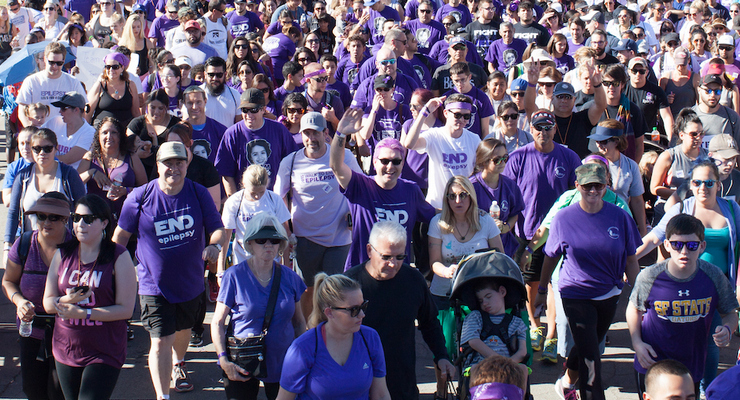
[Epilepsy Foundation Los Angeles]
The Rose Bowl Stadium is poised to become a symbol of unity on Sunday, April 28, as thousands gather for the 2024 Epilepsy Walk. From heartfelt stories of resilience to the shared determination to raise awareness, this event transcends borders and backgrounds, and embodies the power of community in the face of adversity.
Organized by the Epilepsy Foundation of Los Angeles, the Epilepsy Walk registration is available online until April 26 and onsite starting at 8 a.m.
The significance of this event lies not only in its fundraising efforts but in its ability to foster a sense of unity among participants. From families affected by epilepsy to local businesses and community members, the Epilepsy Walk will serve as a rallying point for all those touched by the condition. Participants can lace up their sneakers for the non-competitive 5K run/walk and 1-mile stroll, and do so with a shared goal: to raise awareness and support for epilepsy patients worldwide.
Among those leading the Walk is Loren Zitomersky, President of the Epilepsy Foundation of Los Angeles, whose advocacy traces back to his youth when he began intra-state and cross-country bike rides to raise awareness and funds in support of people with epilepsy.
“The Walk, while being our largest fundraising event to support our programs and services year-round, is also largely about building community and friendships, inspiring hope and empowering people with knowledge to live their best life,” Zitomersky said. “It’s the positive feedback from our community and the many messages of ‘no longer feeling alone’ that encourage us to host the event year after year.”
Zitomersky credits the vision of mother and son Sherry and Bryan Fortier, whose own experiences with epilepsy inspired the first walk in Los Angeles County in 2005.
“As a family affected by epilepsy participating in our program and services, they learned the power of gathering with other people with epilepsy to learn from one another and the comfort from knowing they were not alone,” he said. “Increasing awareness about epilepsy was also a motivating factor to hosting the event. Although epilepsy is incredibly common – one in 26 will develop epilepsy in their lifetime – there’s still so much more education that is necessary.”
Funds raised during the Epilepsy Walk directly benefit programs and services offered by the Epilepsy Foundation of Los Angeles, reaching nearly 160,000 individuals in the greater Los Angeles area. These programs include informational helplines, supportive care, legislative advocacy, and community events aimed at combating isolation and empowering individuals affected by epilepsy.
For those unable to attend the event in person, there are various ways to contribute, from online donations to forming virtual teams and spreading awareness within local communities.
For more information, visit https://epilepsylosangeles.
You may also email help@epilepsylosangeles.org or call (310) 670-2870.






